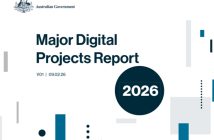
![]() Two days before Valentine’s Day, the ACCC reports that 2,620 Australians reported losing almost $23 million to romance scams in 2015. However, they believe this is just a small fraction of the total, with most victims avoiding disclosure. Rob Collins, Senior Systems Engineer for APAC at WatchGuard Technologies, says the victims come from all walks of life. “I’ve seen both men and women, young and old, and even smart, successful business people fall victim to romance scams,” says Collins. “When you look at the language they use, it’s touching stuff.” Here is a snippit of a conversation, where the scammer is trying to get $2,800:
Two days before Valentine’s Day, the ACCC reports that 2,620 Australians reported losing almost $23 million to romance scams in 2015. However, they believe this is just a small fraction of the total, with most victims avoiding disclosure. Rob Collins, Senior Systems Engineer for APAC at WatchGuard Technologies, says the victims come from all walks of life. “I’ve seen both men and women, young and old, and even smart, successful business people fall victim to romance scams,” says Collins. “When you look at the language they use, it’s touching stuff.” Here is a snippit of a conversation, where the scammer is trying to get $2,800:
In most cases, victims are initially contacted on Facebook or dating sites. The scammers will then prefer to use instant messaging and telephones to communicate as these methods are more difficult to track. The amounts requested are usually in the low thousands claiming hardship as a result of sick relatives, funerals, school fees, plane fares or other reasons. Sometimes the scammer claims to be very wealthy individuals although they are just unable to access their millions at the time of these requests.
“Romance scams continue to cause significant emotional and financial harm to the community. We know these figures are only the tip of the iceberg as many victims are reluctant to admit to friends, family or authorities that they fell for a scam,” ACCC Deputy Chair Delia Rickard said.
“Scammers are experts at preying on people’s weaknesses and will spend months and even years grooming victims and lowering their defences. Inevitably, the fraudster will spin a tall tale about why they suddenly need your financial help, ranging from medical emergencies to failed business ventures to needing to rebook flights to visit you.”
“Once victims realise that their admirer is actually a criminal, the emotional consequences can be devastating. This is why disrupting relationship scams continues to be a priority for the ACCC,” Ms Rickard said.
The ACCC’s Scam Disruption Project has sent over 6,000 letters asking individuals who have sent money to high risk jurisdictions to reconsider sending money offshore. 75 per cent of those people who received these letters ceased sending money for at least six weeks.
“Nearly one quarter of reported romance scams originate on social media, in particular Facebook. The ACCC is looking to work with social media platforms to keep romance scammers off their sites and to help users recognise when they are being scammed,” Ms Rickard said.
“There is almost nothing that security technology can do to prevent clever social engineering scams like this. Only through raising awareness and education can we tackle this problem,” states Collins.





